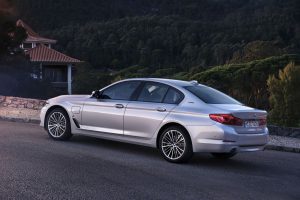
While at first, this may appear to be an innocent discussion about plug-in hybrids versus straight electric vehicles, it turns out to be, you guessed it, a terrific metaphor:
Another challenge for automakers is that hybrids are relatively complicated, with widely varying ranges. Some can travel only on electrons, while others never do. Electric vehicles, meanwhile, can be measured on two simple metrics: miles per charge and price.
“It’s just a much more simple story,” said Tal at UC Davis. His team’s research has shown that people are far more ignorant about plug-in hybrids than fully electric vehicles. In general, he said, shoppers don’t spend much time deciding which car to buy—most effort goes into finding the best price for the model they’ve already set their mind on.
…
The death of the hybrid, while seemingly inevitable, may be a long and slow. A spike in gas prices in the next few years may even draw it out. “I can see them having a role until 2040,” Tal said. “But the problem will always be [that] it’s a more expensive solution having two drivetrains.”
We are absolutely lousy with other expensive-because-they-are-redundant solutions, and some (private schools, for-profit hospitals and health insurance) do triple the damage we can afford for the pain and pound of flesh they exact from the commonwealth. Reality shows seem cheap because [some]people think they don’t have/need writers. Roads and highways seem far more convenient that public transportation somehow, even at 0-miles-per-hour in rush hour that’s really two. Fb is free, see it doesn’t cost anything!
Hatred for irony remains an untapped and unfortunately renewable-into-infinity resource.
